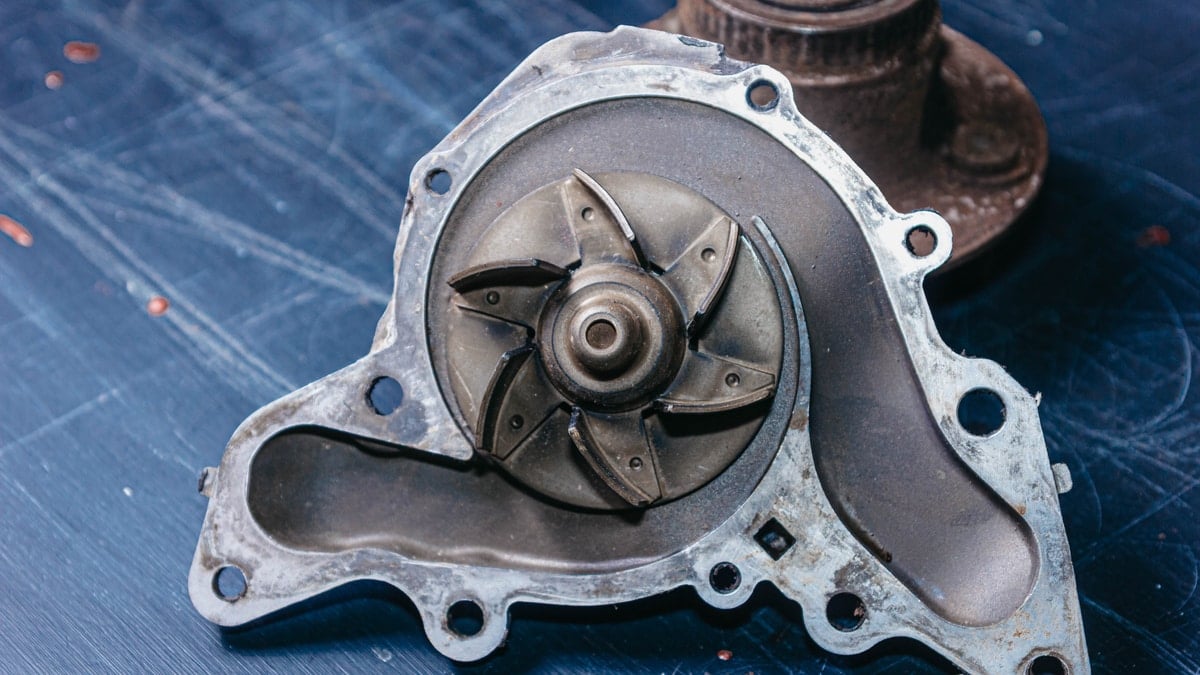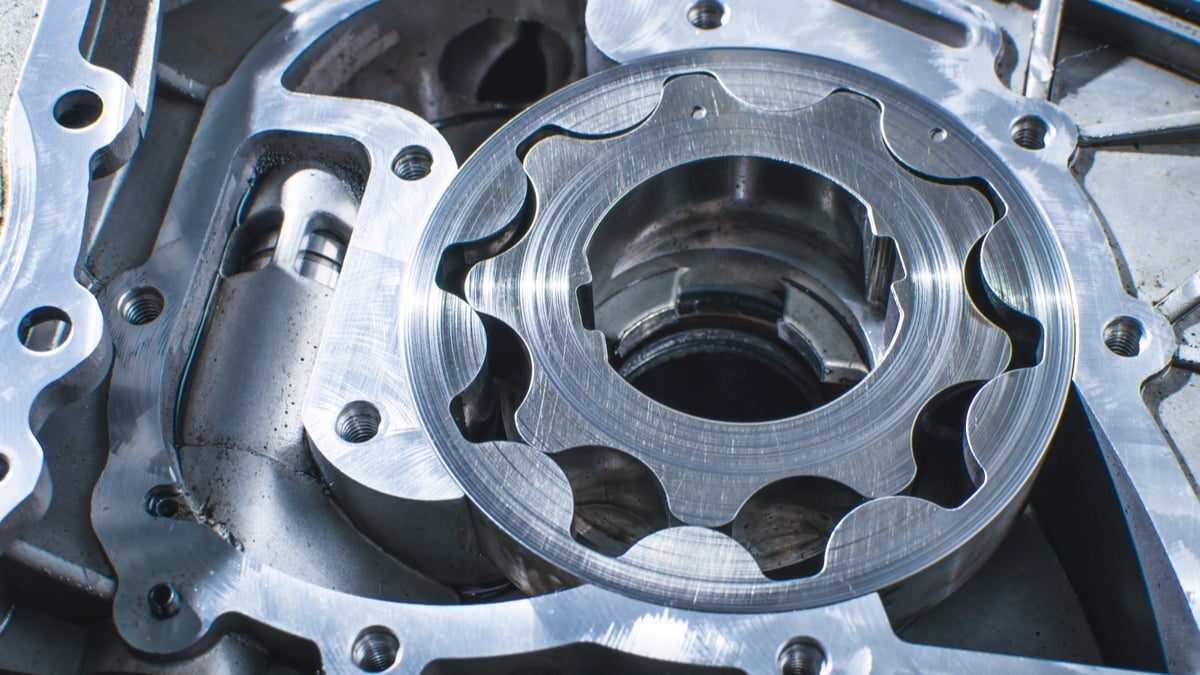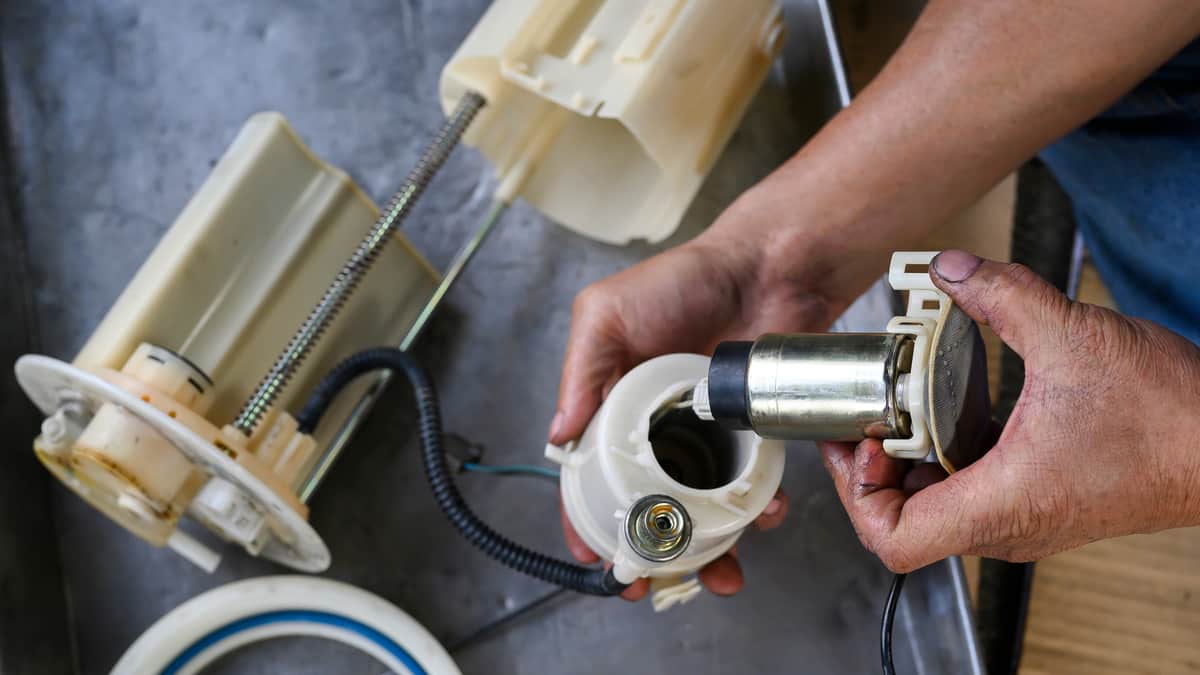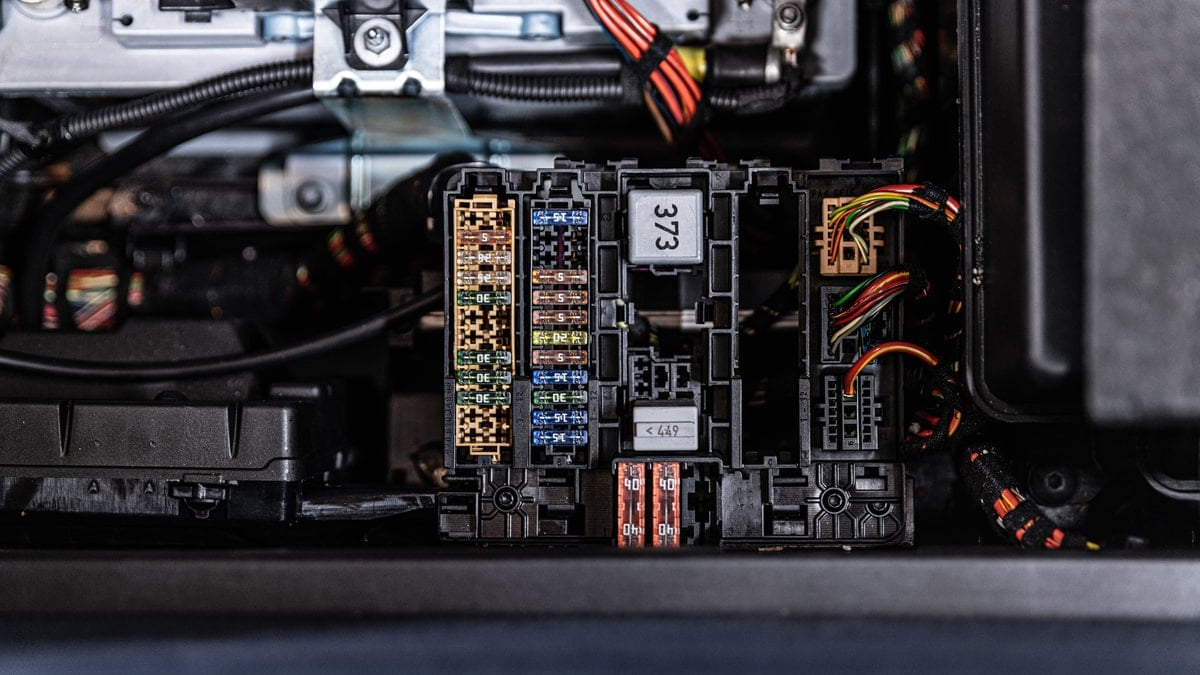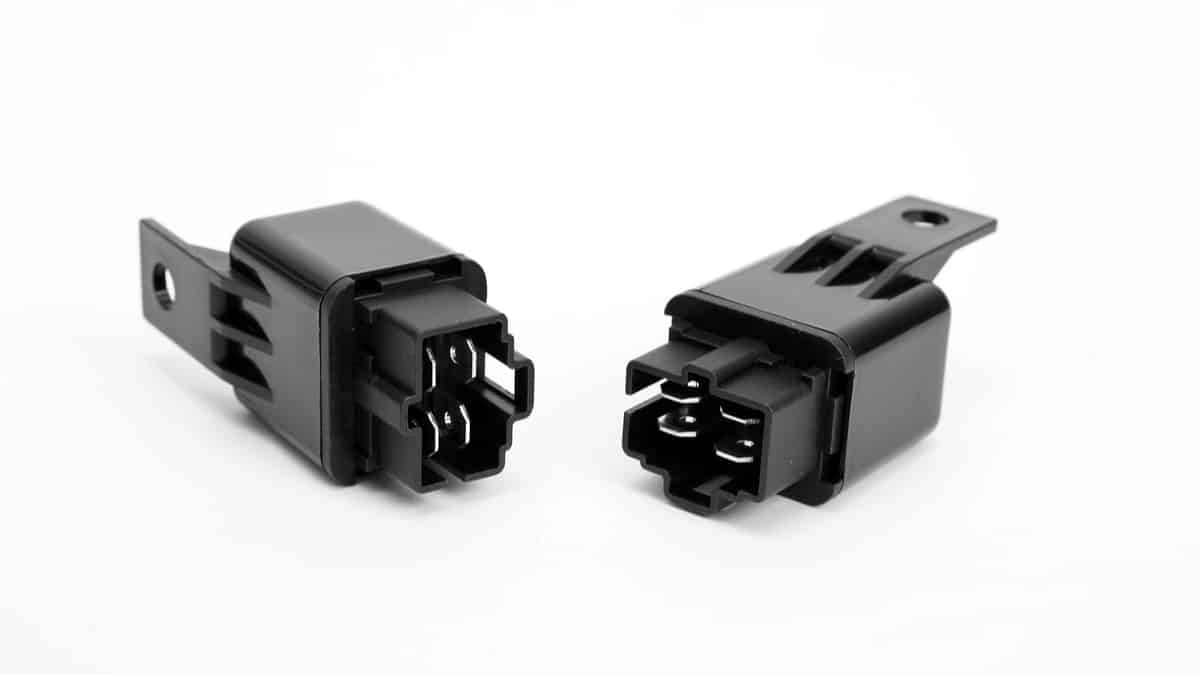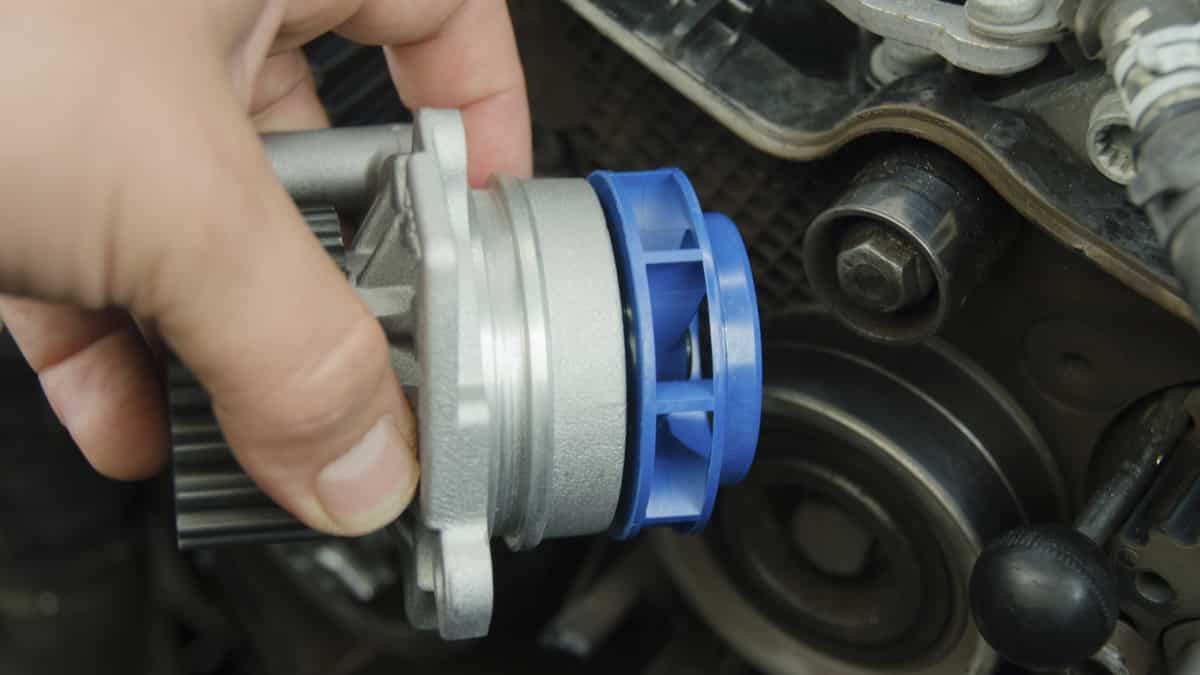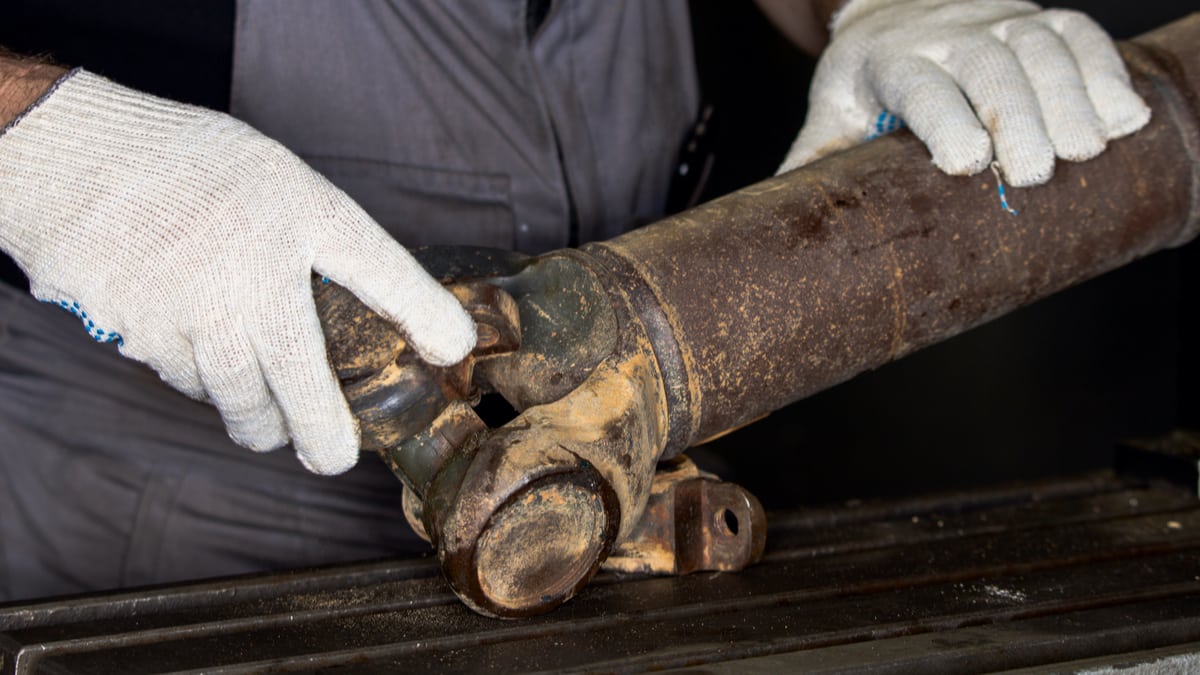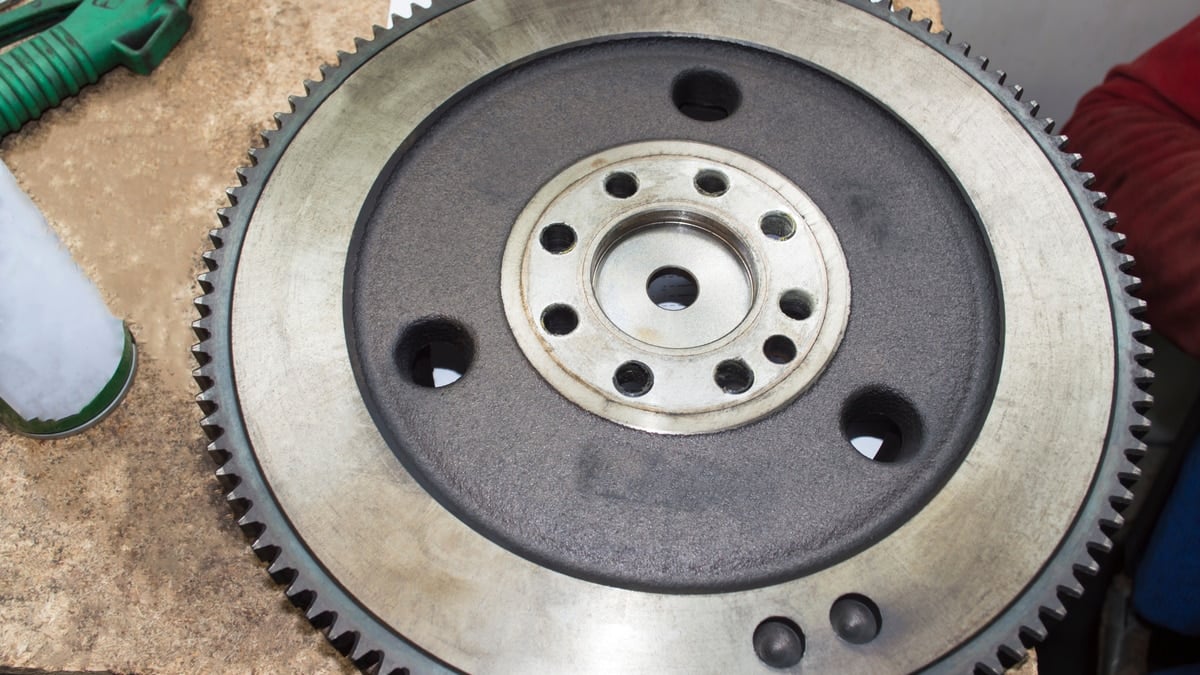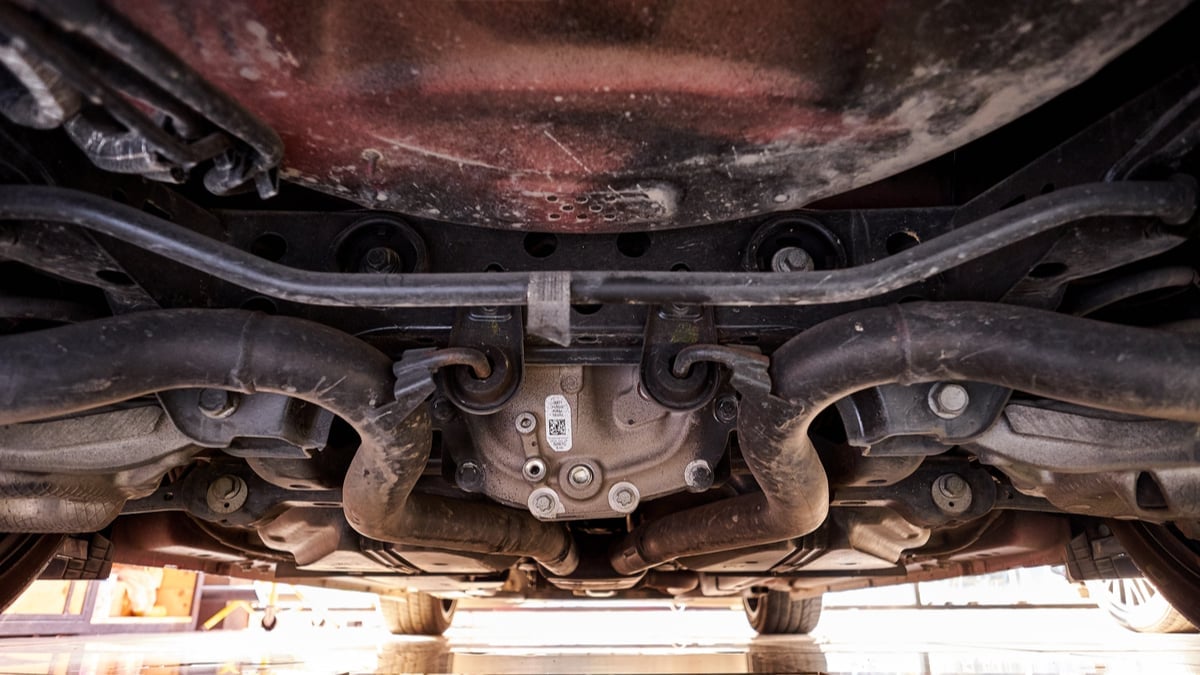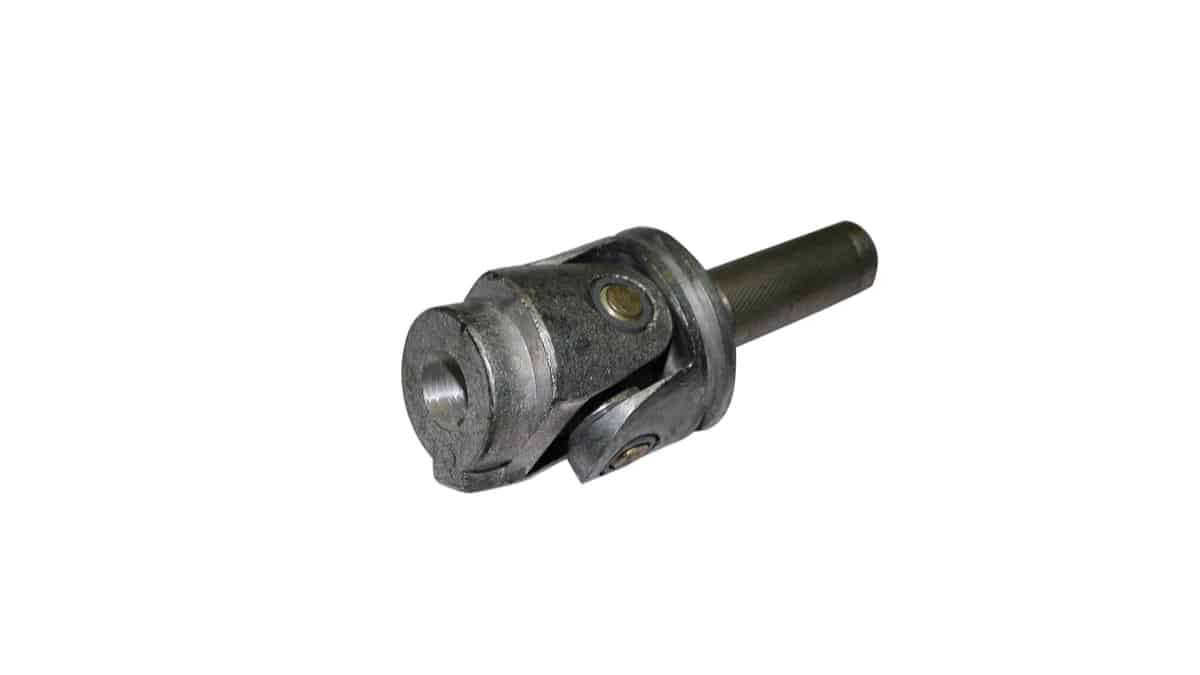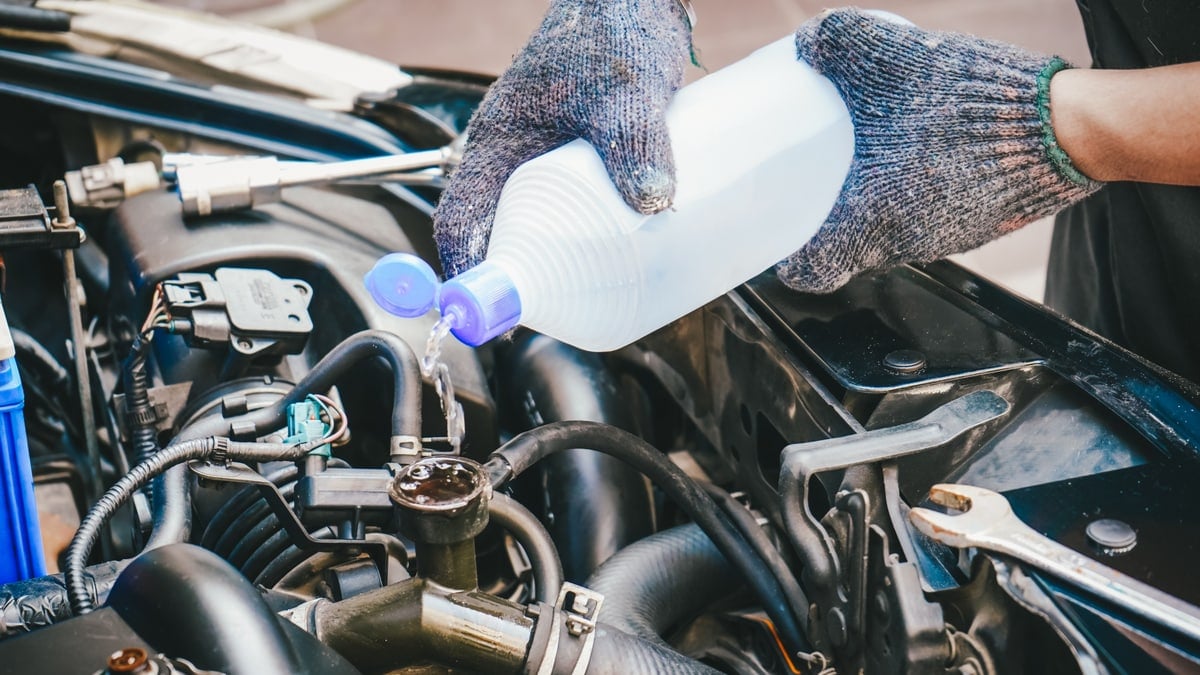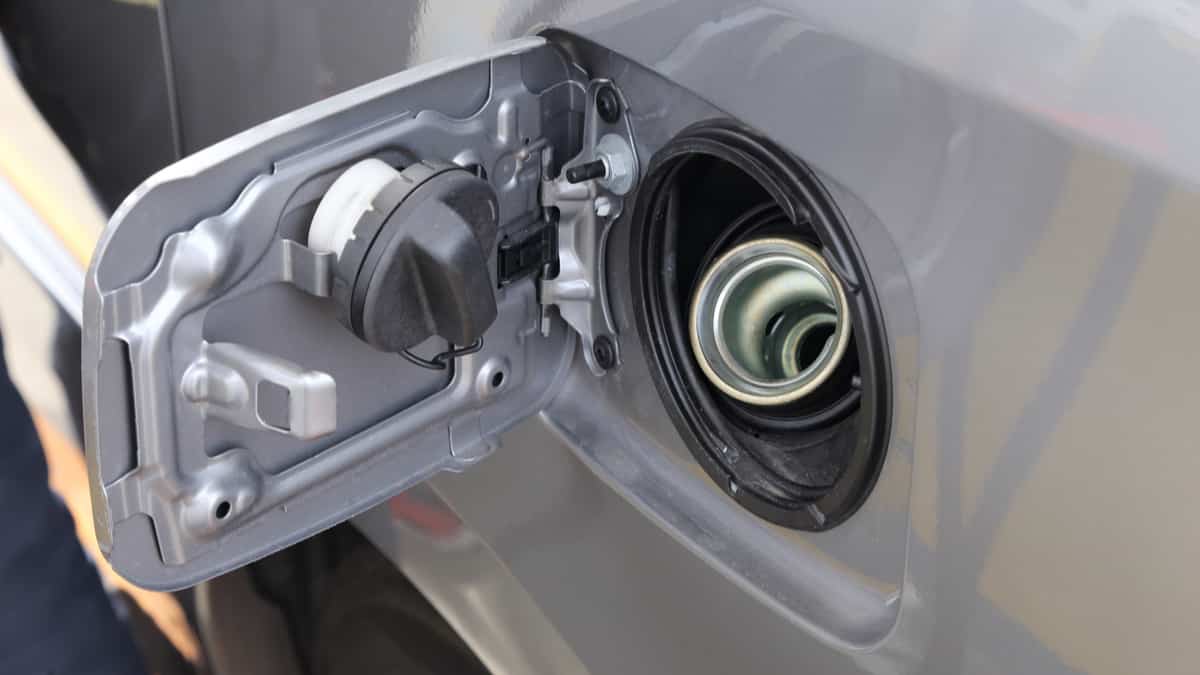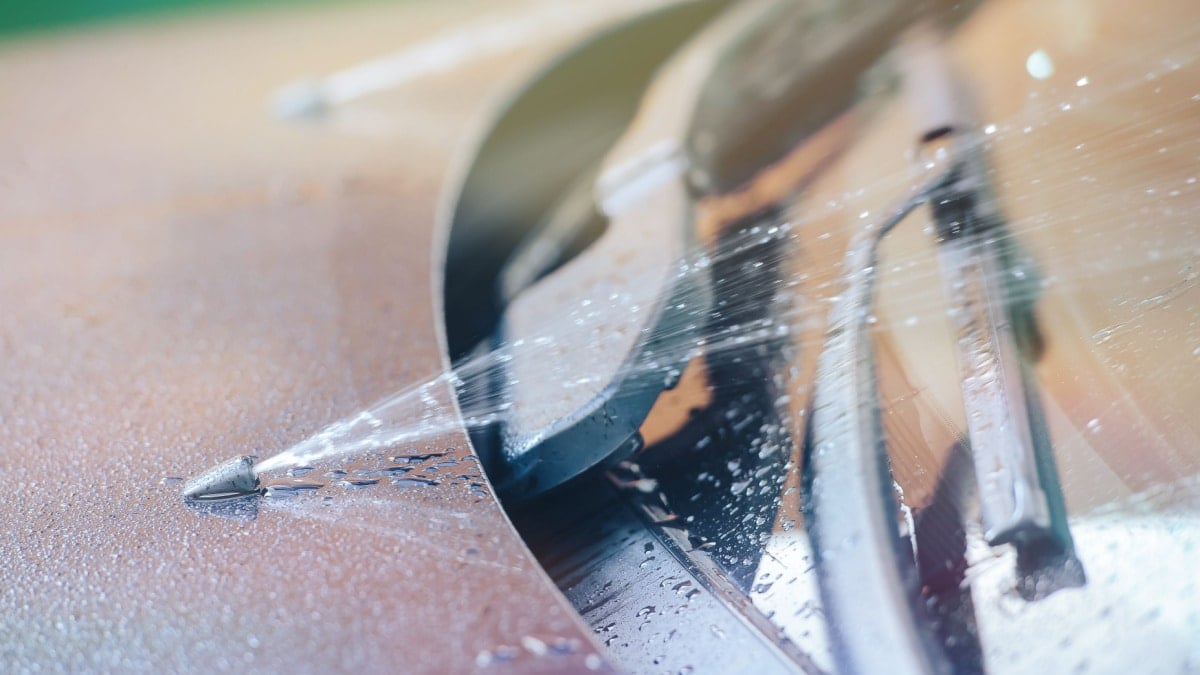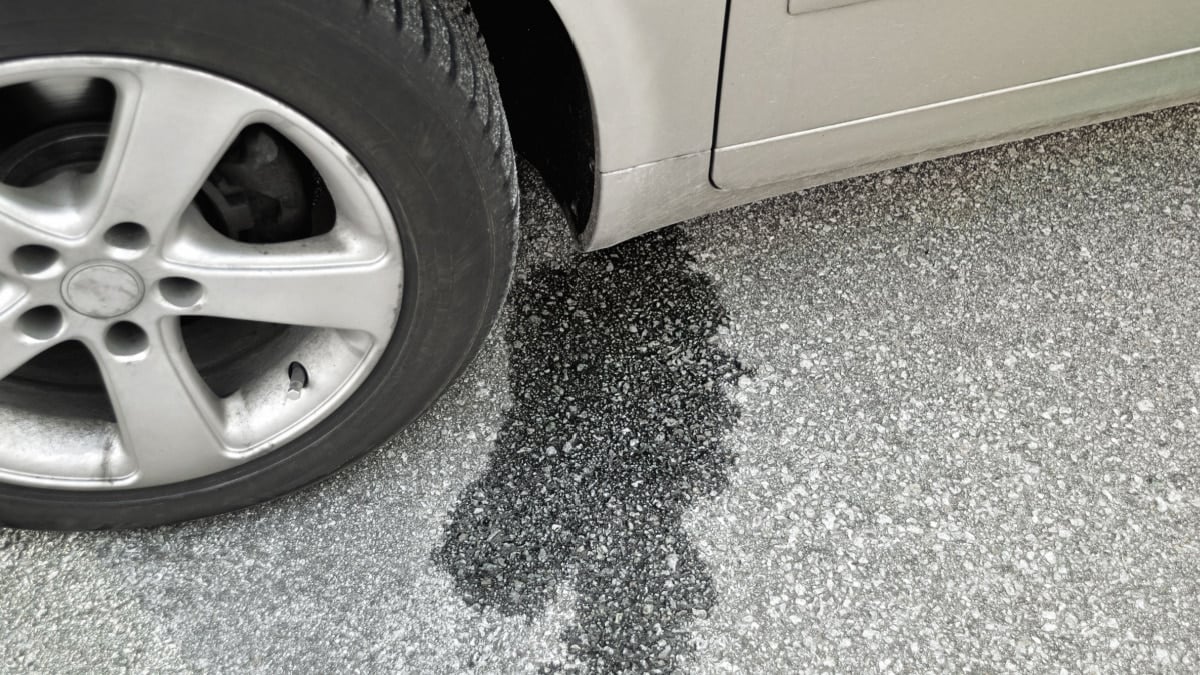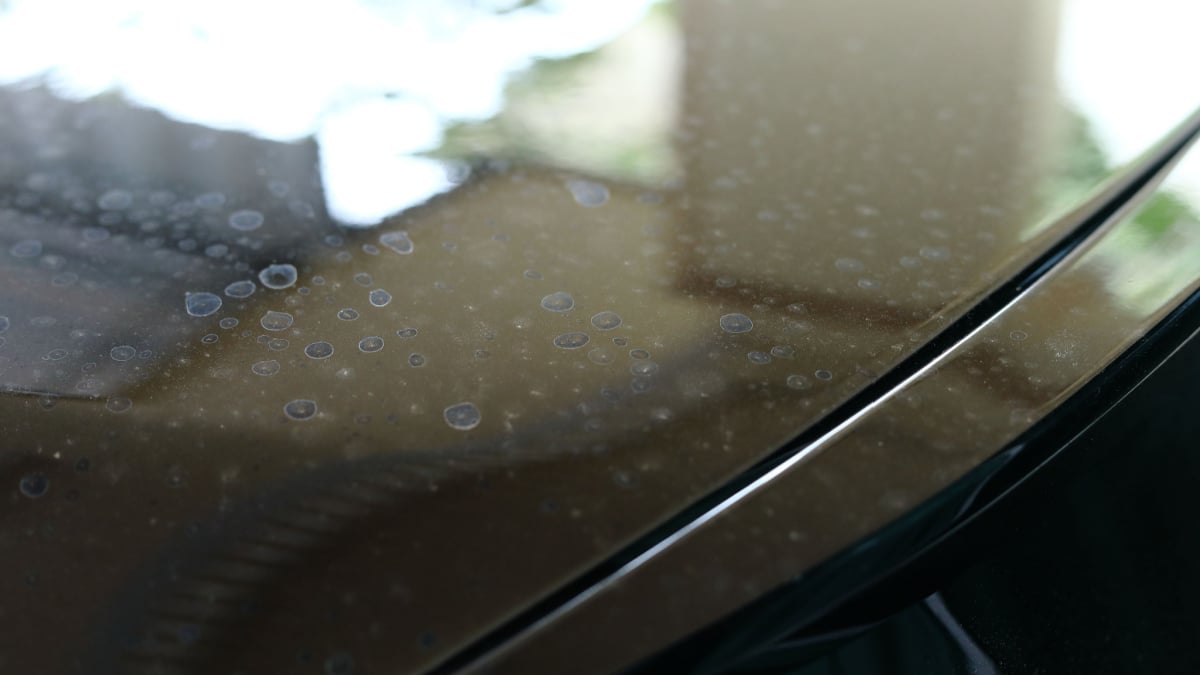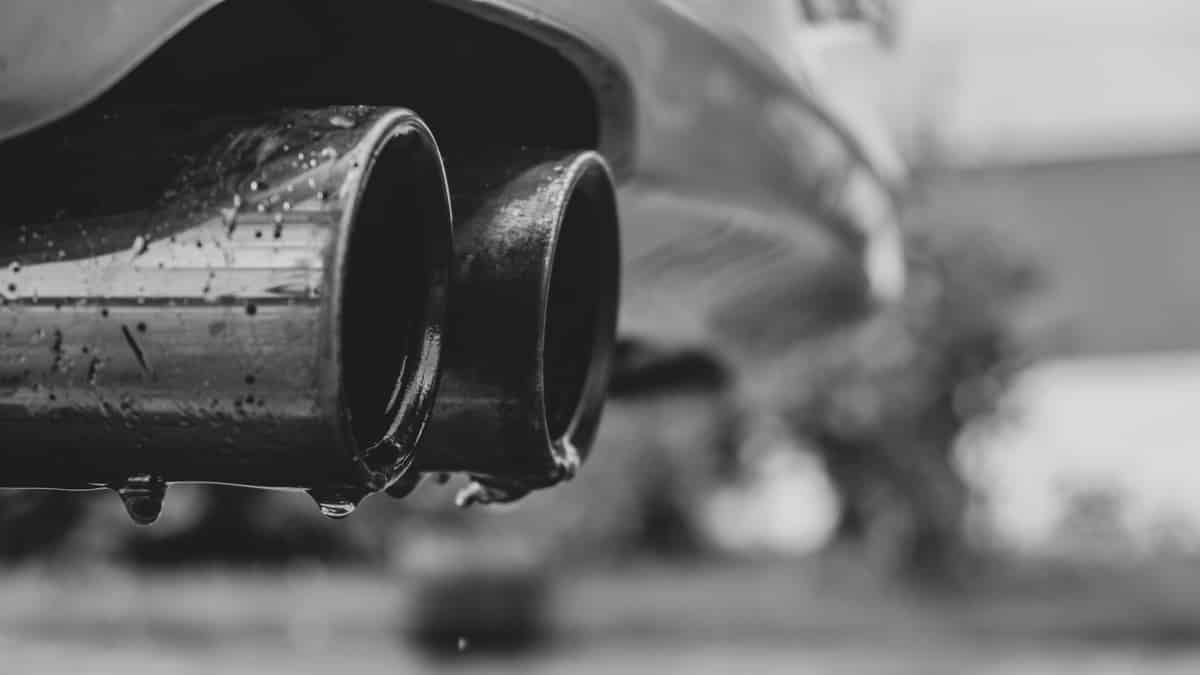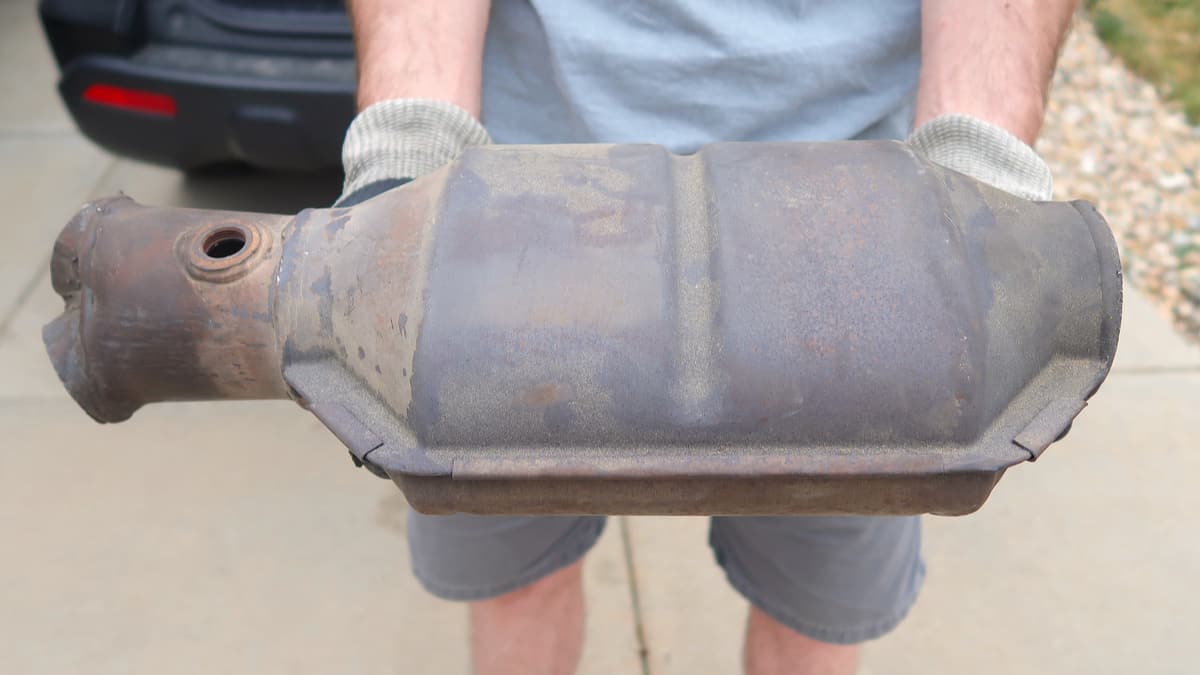The water pump is a part of the cooling system that rarely gets discussed unless there’s a problem. However, when the time comes to have this pump replaced, your first thought is about the price you might pay. How much does a water pump replacement cost, and is it a job you can perform yourself?
In this guide, I cover the factors that affect the replacement cost. I also discuss the frequency of water pump replacement and signs that it’s time to be performed. At the end of the article, I warn you about the ramifications of not changing out a defective water pump.
How Much Does A Water Pump Replacement Cost?
On average, you might spend between $300 and $750 to have the water pump replaced in your vehicle. However, the cost depends on what type of vehicle you drive and whether you are going to replace the water pump yourself. Parts might be $200 to $350, while the rest is labor.
Another big factor in water pump replacement cost is the extra parts you have to replace. For example, in many European cars, the water pump is driven by the timing belt, which is usually replaced at the same time as the water pump, and this will increase the water pump replacement cost drastically. In that case you can expect you can pay up to $2,000 – or even more – for a water pump replacement cost.
Average Replacement Cost by Car Model
These are the average water pump replacement cost per car model and year with the most common engine types. However, you may have a different engine type in your car, which may give you a completely different price.
| Car Model | Part Cost | Labor Cost | Total Cost |
|---|---|---|---|
| Ford F-150 | $150 | $250 | $400 |
| Honda CR-V | $150 | $200 | $350 |
| Chevrolet Silverado | $350 | $200 | $550 |
| Ram 1500/2500/3500 | $200 | $250 | $450 |
| Toyota RAV4 | $400 | $350 | $750 |
| Toyota Camry | $150 | $300 | $450 |
Factors Affecting Water Pump Replacement Cost
To determine a cost for the water pump replacement cost, we need to look at what factors affect the price, and here are the most important factors you should look at.
1. Car Make/Model
Probably the biggest factor affecting the price is the car and engine model you drive. In some cars, replacing the water pump is very easy and can be done in under 30 minutes, while in others, it can take many hours. You may have to disassemble almost the entire engine to reach and replace your water pump.
Also, If you have a small engine in your vehicle, there’s probably a smaller water pump installed, so your price won’t be high for the part. On the other hand, the more work the water pump is responsible for, the higher the price is going to be. Additionally, luxury car parts can often cost far more than their budget counterparts.
2. OEM vs. Aftermarket
If you want the vehicle to continue running as it did from the factory, the OEM water pump is your best option. However, the OEM equipment is usually more expensive than those that are made by aftermarket manufacturers.
With that said, many aftermarket water pumps continue to provide reliable service. Do the research to make the right decision for your vehicle.
READ MORE: OEM vs. Aftermarket Parts: Differences (& Which is Better?)
3. DIY vs. Professional
If you have some mechanical skills, it might be beneficial for you to replace the water pump on your own. When this is done, you save a lot of money on the labor.
However, if you aren’t equipped to change the water pump, you need to visit a repair shop. The labor charge will depend on where you are located and what kind of vehicle you drive.
4. Additional Parts Required
When the water pump is changed, you can’t just buy that single part and assume you have everything you need. At the bare minimum, you will also need to purchase new coolant and a water pump gasket for a proper replacement.
Aside from that, other parts could be damaged at the same time, depending on what has gone wrong with your vehicle. If you need a new serpentine belt, timing belt or pulleys, you can expect a higher repair cost due to the extra parts and labor required.
As I discussed earlier, some cars also have the water pump driven by the timing belt, and both of these parts are usually replaced at the same time. This will drastically increase the replacement cost, and you could be looking at the cost of a timing belt replacement instead.
How Often Should a Water Pump be Replaced?
A water pump should typically be replaced every 60,000 to 100,000 miles, but it depends on the engine and car model. However, some car models do not have a scheduled replacement interval for the water pump, and it only needs to be replaced when it fails.
In many modern cars, the water pump is driven by the timing belt and should be replaced at the timing belt replacement interval.
The most common way in older car models is to replace it only when it fails. Some failures exhibit as a minor leak. However, the water pump could cease completely because of a broken bearing or impeller. Either way, the replacement should occur immediately.
By properly maintaining the cooling system, you help the water pump last as long as possible. With a serpentine belt replacement, coolant flushes and repair to any defective parts, you can help the water pump last as long as possible.
How To Tell If The Water Pump is Failing?
1. Overheating Engine
When the engine overheats, it’s always possible that the water pump has failed. You might first notice the overheating engine because of the warning light that comes on the dashboard. You may also have a temperature gauge that shows the engine is getting hotter than normal.
Another sign of an overheating engine is steam coming from the front of the vehicle. If you see this occurring, it’s best to pull over until you figure out what’s wrong. Because the water pump is necessary for cooling down the engine, any malfunction can cause the motor to run hotter.
While a water pump could be to blame, so can other defective parts. It could also have to do with contaminated coolant, a bad thermostat or a damaged radiator. Either way, the heat will eventually build up and cause permanent damage to the motor.
READ MORE: 6 Symptoms of a Bad Water Pump, Function and Location
2. Fluctuating Temperature
When the cooling system is working as it should, the temperature of the engine should consistently remain normal. On the other hand, a water pump that’s going bad can cause unusual fluctuations that gain your attention. If there is a defect, the engine could start to overheat and then level off temporarily. If this is the case, you’ll see the temperature gauge moving up and down.
Again, the water pump isn’t the only part that can be blamed. If the radiator is damaged, the same issues can occur. There could also be an air bubble trapped in the closed system, leading to trouble. Otherwise, a sensor in today’s modern cooling systems can be finicky when damaged.
READ MORE: Car Temperature Gauge Goes Up and Down – Causes & How to Fix
3. Strange Sounds
When you head down the road, you don’t want to hear any unusual sounds. Yet, when the water pump is going bad, there could be some sounds that you don’t normally hear. The engine could start squealing, buzzing or whining in these situations. These noises are also created when there’s a problem with the accessory belt, which can cause damage to the water pump. The accessory belt could exhibit trouble if the bearings are worn out or a pulley is loose.
If the belt is on too tight or too loose, the same problems can occur. That’s why it’s important to check the specifications of the belt tension to ensure it’s running as it should. With regular inspections and maintenance, you can keep the water pump in optimal operating condition. No matter what is causing the engine noise, it’s important that you have it checked out right away before any permanent damage occurs.
READ MORE: 7 Engine Noises You Should Not Ignore (& What They Mean)
4. Leaking Fluid
The automotive cooling system is designed to be completely closed. For this reason, you should never see any coolant fluid leaking from the vehicle. If there is a puddle below the car, it’s something to be alarmed about. The color of the fluid varies based on what type of coolant is used, but it’s often green or orange-colored.
Fluid can leak if a seal or gasket around the water pump wears out. There’s also the chance of the water pump cracking or breaking because of old age and abuse.
You may not even see the leaking fluid if the drips are slow. A slower trickle can land on various automotive parts under the car and harden. In this case, you might only know that there’s a leak because the levels keep dropping, requiring you to add more coolant. Where the coolant leaks, there could be corrosion on the parts as it hardens.
Additionally, a coolant leak doesn’t automatically mean that there’s a problem with the water pump. The problem could stem from any broken hose, defective radiator, or failing seal. Either way, it’s imperative that you have the leak diagnosed immediately. Without the right amount of coolant in the engine, the motor can fail completely, leading to a much higher repair bill.
Can you drive with a broken water pump?
No. You should not drive a car with a failing or bad water pump, because it’s a serious issue. If the engine hasn’t started to overheat already, it won’t be long. Once that happens, you are facing serious internal engine damage that isn’t simple to repair.
The majority of vehicles have a warning light that tells you when the engine is overheating. Once this light comes on, you are out of time. In fact, the engine may have already gotten hot enough to cause damage.
As with any mechanical failure of your vehicle, it’s best to have the problem looked at right away. Yet, when it comes to the cooling system, you have no time to wait. This isn’t a system you want to procrastinate with when it comes to diagnosis and repair.
Once you know something is wrong with the cooling system, it’s best to pull over and figure out what’s happening. The only way you should drive home or to the shop is if you can ensure that the engine won’t overheat. Otherwise, it’s best to have it towed and repaired immediately.
Is replacing a water pump worth it?
Yes. Replacing a water pump will ensure that the life of your engine is extended and is in most cases worth it. However, if your car is very old and not worth anything, it may be worth buying a new car instead if it is difficult to replace the water pump on that particular car model.
What makes a water pump go bad?
Water pumps go bad due to age and heat from the engine. Many modern water pumps have a plastic impeller that begins to crack with age and deteriorate. In addition, gaskets and seals can begin to deteriorate and leak due to age.
How long does a water pump take to replace?
A water pump can get replaced in between 1 and 4 hours in most cars. However, in some cars the water pump is driven by the timing belt, which can make the process much longer and more difficult. The time-consuming part is to bleed the cooling system afterward if you are not used to it.
A Mechanic’s Tips about water pump replacement
- Always fill your car with a new coolant after a water pump change if you haven’t changed it in a while.
- If your water pump is driven by the timing belt or timing chain, it may be a good time to replace them at the same time to save future costs.
- Be sure to bleed the coolant system after replacing the water pump, otherwise your car engine could overheat and get damaged. I recommend using a vacuum coolant. A failed coolant bleeding can result in hot spots in the car’s cooling system, which can result in serious damage to your engine if you’re unlucky.
- Never start changing the water pump before you are 100% sure that the car’s coolant is cold; otherwise, serious injuries may result, as the car’s coolant may reach boiling temperatures.
As you can see, there are a wide variety of factors that will affect your final water pump replacement cost. By taking the time to research different options and finding a reputable mechanic, you can ensure that your new water pump will be installed correctly and last for years to come.
I hope you now have the knowledge to determine the water pump replacement cost for your car model, and can now decide if you need to replace it.
Learn more:
